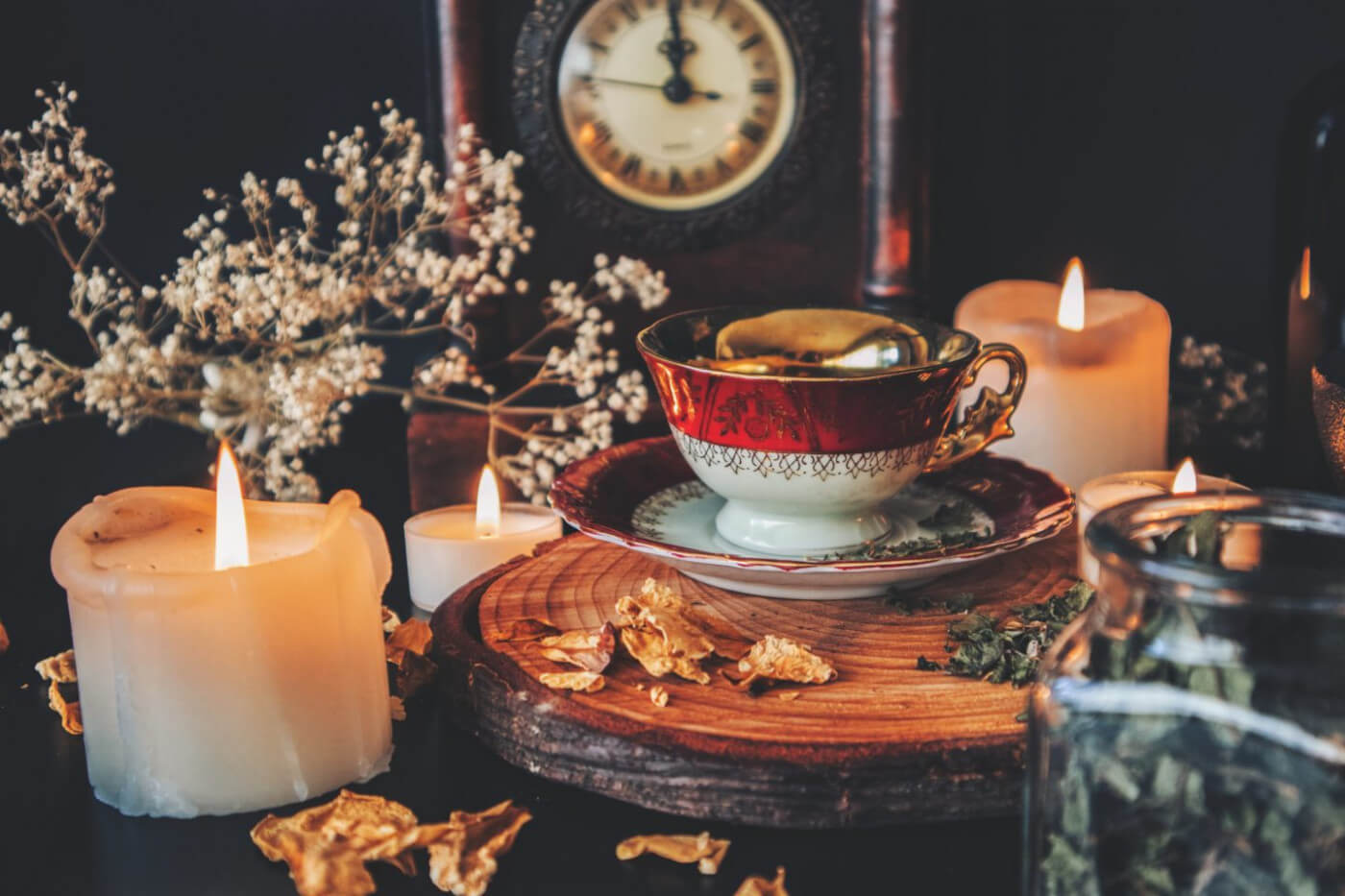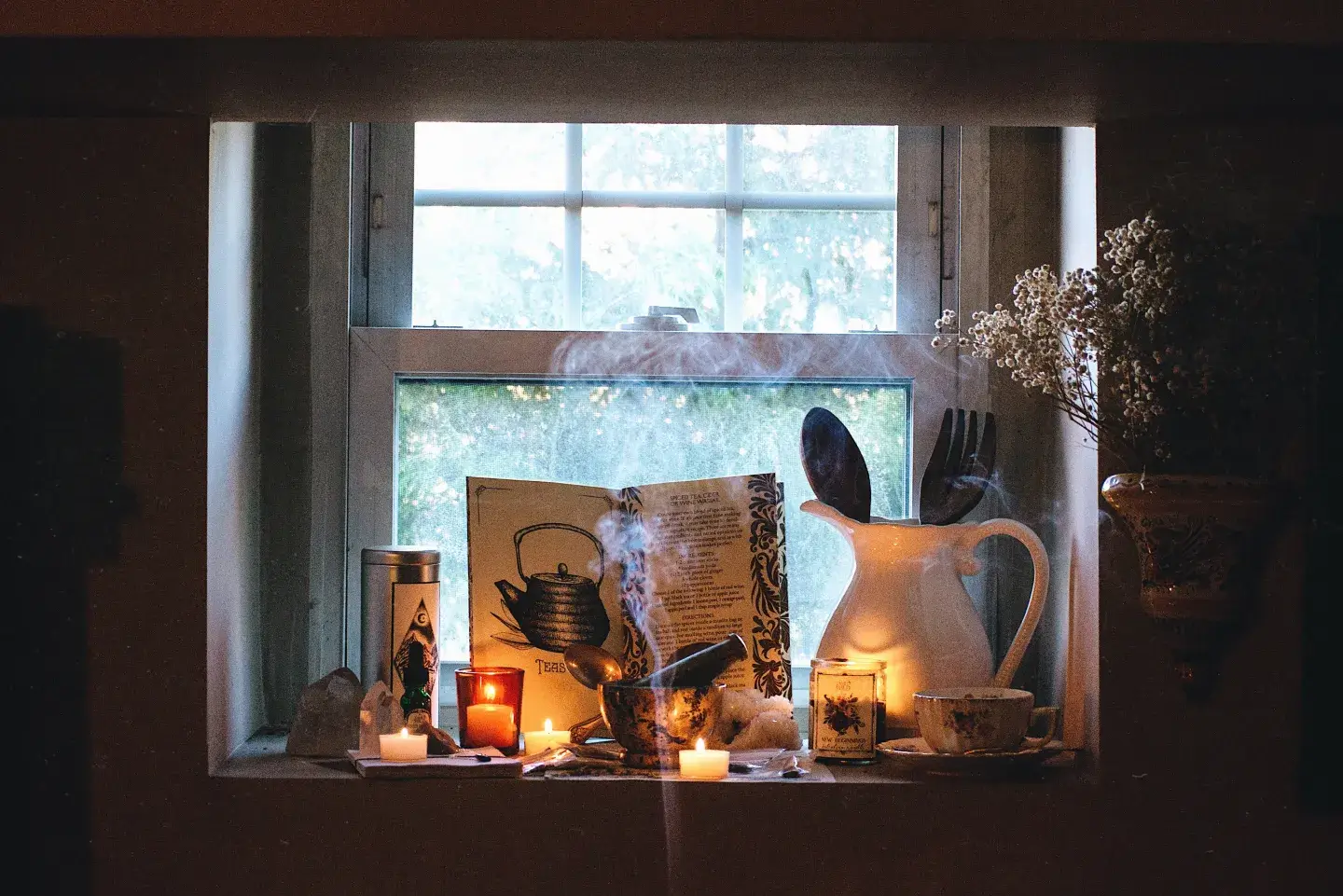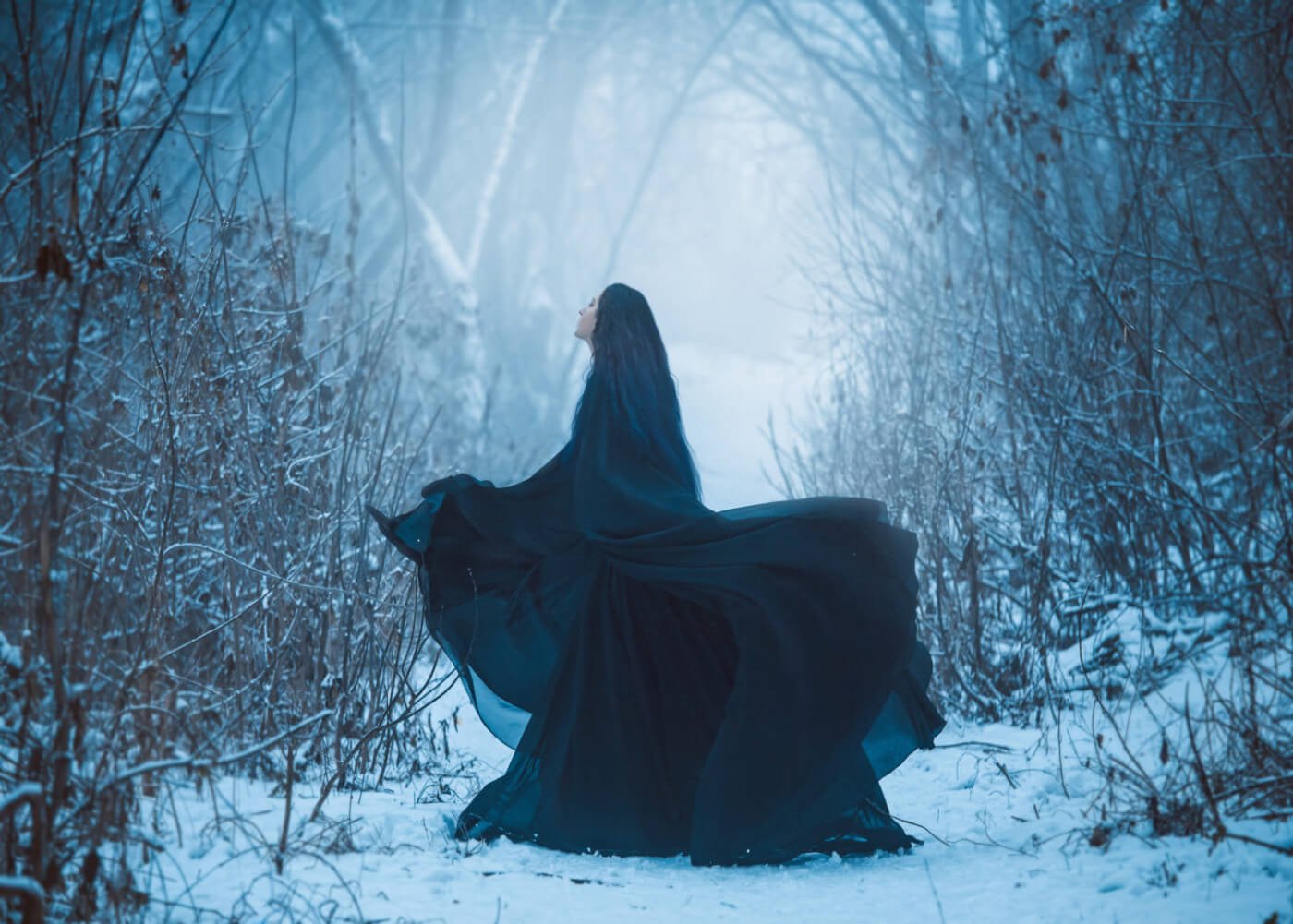One of eight seasonal festivals in the Celtic Wheel of the Year, Samhain marks the end of the harvest season and the beginning of the darkened times—our world’s descent into the depths of winter.
Much like Beltane, Samhain is considered to be the opening of a liminal time—a thinning of the veils between worlds. This is why its believed that spirits, faeries, ancestors, and darker entities could more easily roam our lands, as the portal between our world and theirs is considered to be at its thinnest.
Samhain is a time of newness and beginning—with Samhain considered to be the start of the Celtic New Year. Now, this may seem strange to many who see new beginnings and fresh starts as this bright and energized passage, but it is only through the portal of death that we find our rebirth. And that is what Samhain represents—our descent into death. This is not a time to bound forward in outward journey and achievement, but a time where we are urged to go inward—honoring the darkness that cloaks this night.
As one of the most famous Celtic festivals (thanks due to its modern ancestor, Halloween), Samhain is steeped in history and old tradition. It is a time where we honor the dead, protect the living, and petition the spirits for wisdom and prediction.
How to Celebrate Samhain:
In preparation for this upcoming festival, it is wise to gather your ritualistic items ahead of time—spending the actual days around Samhain in a calmer, deeper state of quiet. This is a time of heightened spirit sensitivity—and by allowing yourself to move more slowly and intentionally, you can navigate this time with more wisdom and ease.
Themes: this is a time to honor your ancestors and the recently deceased, protect yourself and your home, turn to divination to seek answers, reflect on the year that has passed, and set your sights on the year to come.
Offerings: pumpkins, fallen leaves, offerings from any harvest you may have gathered (from your garden, cattle, or otherwise), black candles, dark-colored crystals, food (homecooked is best), and incense (such as dragon’s blood, myrrh, copal, mugwort, bay leaves, cinnamon, rosemary, sage).
Traditions:
- Create an ancestral altar: honor the dead with an altar decorated with pictures of the passed, family heirlooms, candles, and offerings of food and incense. Use this time to connect with loved ones who have passed, and with ancestors you’ve never met.
- Participate in a Dumb Supper: the tradition of a Dumb Supper is one that goes back centuries. It is a dinner held in complete silence, with an extra table setting (complete with food and drink) left out for the dead to join. While exact traditions vary, it is considered standard to only use candlelight during the supper, and shrouding the spirit chair (the chair in front of the table setting left for the dead) in either white or black cloth.
- Practice divination: whether you prefer tarot cards, rune reading, scrying, bone casting, using a pendulum, or perhaps prefer a more traditional folk method (barmbrack, apple peeling, fire gazing, egg cracking, and more), Samhain is the best night of the year for divining answers, wisdom, and predictions for the year ahead.
- Wear a costume to confuse evil spirits: as this night is considered a thinly-veiled time, they say that many evil or negative entities roam our lands. And so, to protect ourselves, many turn to the tradition of costume or mask wearing to confuse the evil spirits into leaving you alone.
- Light a fire for protection: join a community bonfire on this night, or simply light a candle (or jack-o’-lantern) by a window or a door. Fires are considered to have cleansing, purifying, and protecting properties—bringing light to a night filled with darkness.
- Lay out offerings for the spirits: many consider it good luck to lay offerings out for the spirits that roam the lands on this liminal night. Some say you can lay these offerings out on your altar, while others say it’s best to leave the offerings on the edge of your property or a little ways outside your front door (appeasing the spirits, but not drawing them near). Some even consider it bad luck to not feed and appease the spirits on this night.










